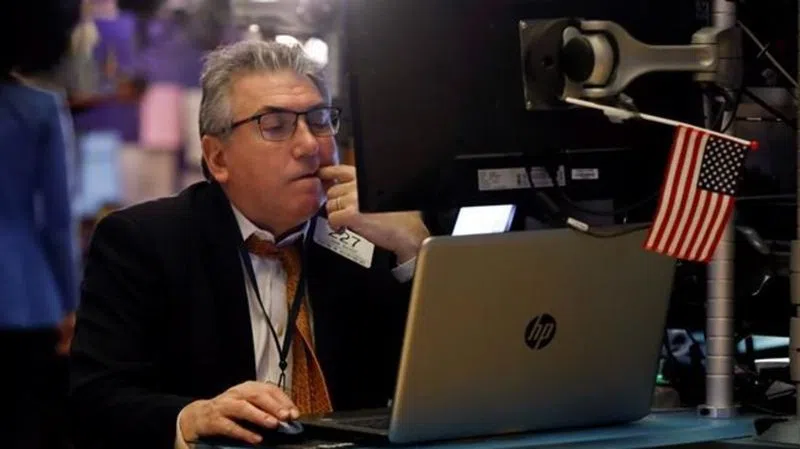
Global markets plunge as virus cases spread beyond Asia
NEW YORK — Stocks are opening sharply lower on Wall Street, pushing the Dow Jones Industrial Average down more than 700 points, as virus cases spread beyond China, threatening to disrupt the global economy. The early plunge in U.S. trading erased the Dow’s gains for the year. Markets in Europe and Asia had even bigger losses as infections spread in Italy, Iran and South Korea. Bond and gold prices surged as investors sought safety. The S&P 500 dropped 84 points, or 2.5%, to 3,251. The Dow fell 775 points, or 2.7%, to 28,212. The Nasdaq lost 298 points, or 3.1%, to 9,282
THIS IS A BREAKING NEWS UPDATE. AP’s earlier story follows below:
Shares skidded, oil prices sank and the price of gold surged on Monday as the number of people infected or killed by the viral outbreak that began in China surged, heaping more uncertainty on the economic outlook.
The decline promises a sharp drop on Wall Street when it opens and comes after finance chiefs of the Group of 20 major economies warned the outbreak that began in China is threatening to derail world growth.
